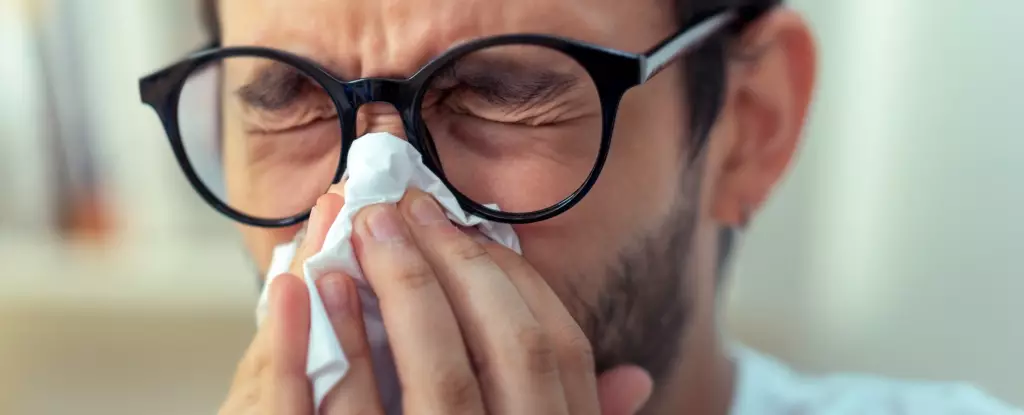Sneezing is often seen as a basic bodily function that helps rid our respiratory system of potential threats. The process is controlled by the “sneezing center” in the brain’s medulla, which activates in response to irritants in the nose and airways. When we sneeze, our body’s reflexes kick in, closing our eyes, throat, and mouth while our chest muscles contract to expel air at a high speed.
While sneezing is a natural defense mechanism, it can also lead to serious injuries in certain situations. For example, violent sneezing can cause the lung to herniate through weak points in the intercostal muscles. This risk is heightened in individuals with underlying health conditions such as obesity, COPD, diabetes, or smokers. In some cases, sneezing can even tear delicate tissues like the lungs or lining of the brain.
The force generated by a sneeze can have far-reaching consequences beyond just irritating the respiratory system. Sneezing can raise blood pressure, leading to aortic dissection or hemorrhages. A severe sneeze can even cause fractures in bones around the eye or bladder leakage in individuals with weak pelvic floor muscles.
While some may think it’s safer to stifle a sneeze, doing so can actually pose more risks. By suppressing a sneeze, individuals can experience injuries such as tearing the windpipe, fracturing facial bones, or damaging the larynx. The pressure build-up from holding in a sneeze can have serious consequences on the tissues and organs involved.
Contrary to popular belief, sneezing with your eyes open will not cause them to pop out. Our bodies are well-adapted to handle sneezing, and most injuries associated with it occur in rare circumstances. While extreme cases like long-lasting sneezing fits or incredibly loud sneezes may pose higher risks, the average individual doesn’t need to worry too much about the potential harms of sneezing.
Overall, it’s essential to recognize that something as seemingly innocuous as a sneeze can have unexpected and severe consequences on our bodies. Understanding the risks associated with sneezing can help us appreciate our body’s intricate mechanisms and take precautions to ensure our health and well-being. So the next time you feel a sneeze coming on, remember to brace yourself for the impact it could have.


Leave a Reply